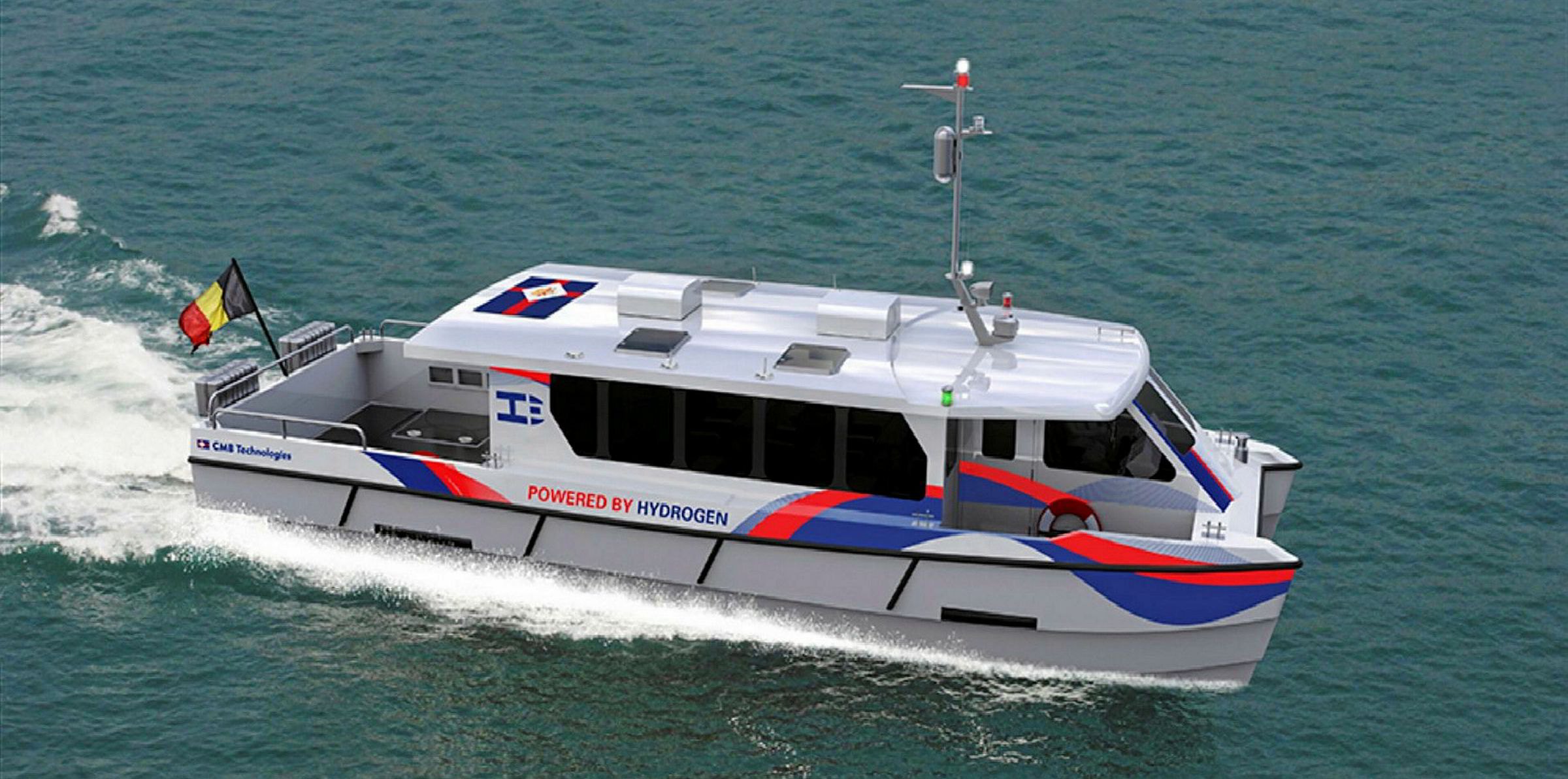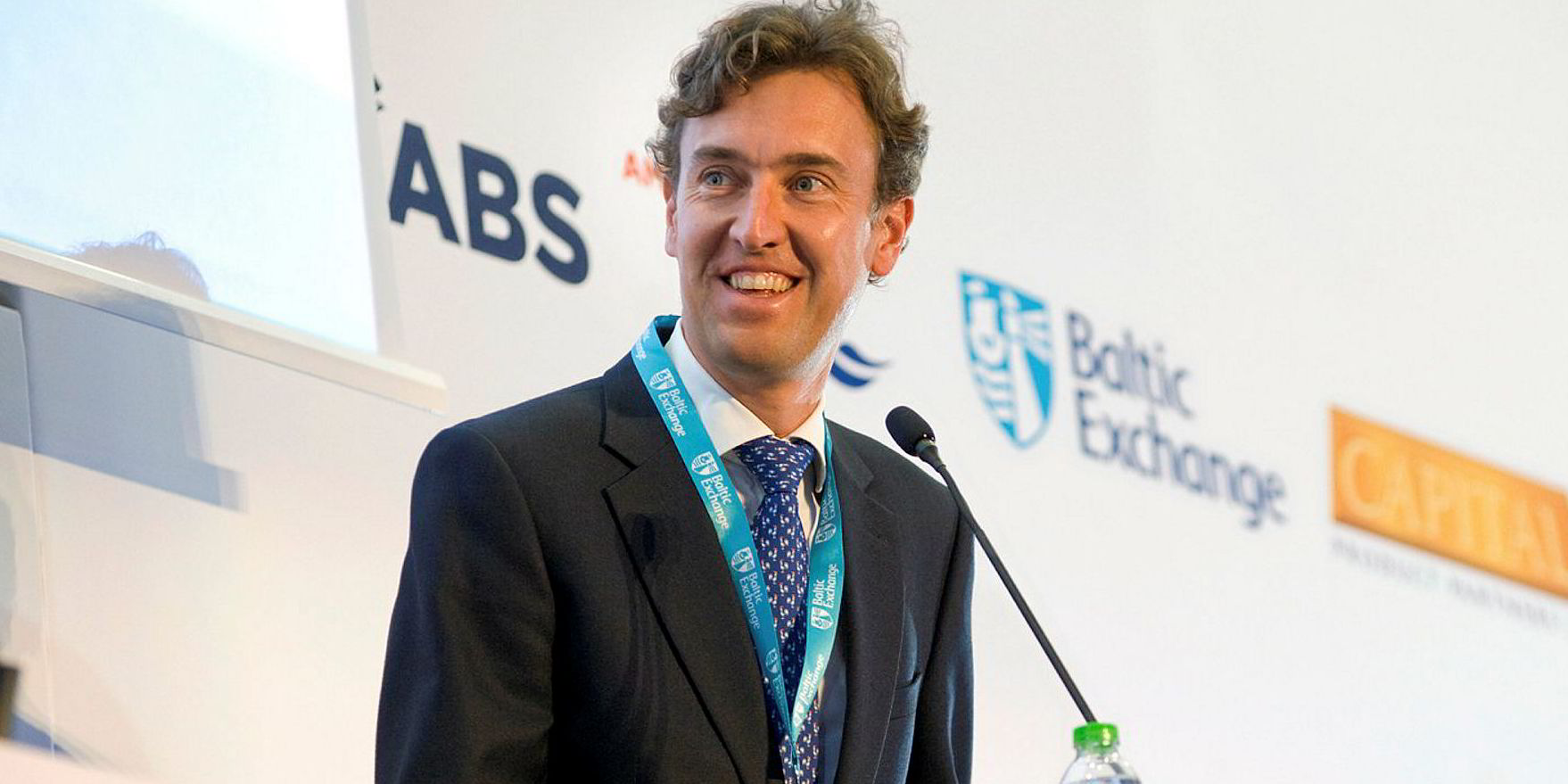Belgian shipping giant Compagnie Maritime Belge (CMB) is to pioneer the use of hydrogen as a fuel for its commercial shipping fleet.
Chief executive Alexander Saverys says hydrogen will be used to power engines installed on the Antwerp-based shipowners’ vessels as soon as next year.
It will initially be used to power auxiliary engines but, he says, could also be used to fuel two-stroke main engines.
Saverys says tests using hydrogen as a substitute for diesel on a small passengership have proven successful, and his company is ready to scale-up its use to containerships or bulkers.
CMB has focused its attention on the hydrogen combustion solution: injecting hydrogen into a combustion engine instead of diesel.
“This is already old technology, but it has never been done onboard a ship,” Saverys said.
“We wanted to find out whether it was possible onboard ships. Everybody said it was not.”
Transferring technology
The decision to transfer the technology to its commercial fleet follows the success of tests using the Hydroville, a small ferry built for CMB at BW Seacat in Portsmouth in 2017.
The vessel, which will predominantly transport employees and commuters across the River Scheldt between Kruibeke and Antwerp in Belgium, uses an engine that can burn 100% diesel, or 90% hydrogen.
“We proved that with converted engines, you can have a dual-fuel solution,” Saverys said. “That was the first thing we wanted to test.

"Now we are moving onto the next step, which is beginning next year. We will have a one megawatt [MW] auxiliary engine that we can put onboard of our ships.”
This next step would see up to three standard one-MW engines installed on a small feeder boxship, or four on a capesize bulker.
A further step would involve installing a two-MW auxiliary engines onto CMB vessels, with the end goal of installing a two-stroke main engine.
Saverys argues that the traditional barriers preventing the use of hydrogen are being broken down.
He says it is safer than alternative fuels, such as LNG, because hydrogen vents and evaporates into the air.
And the cost of hydrogen is becoming less of an issue as prices fall, thanks to excess electricity from solar and wind.
Renewables can produce hydrogen at around €1.50 to €2 ($1.72 to $2.30) per kilo.
That equates to a litre of diesel at $0.60 to $0.70 cents, bringing the price of hydrogen closer to the $0.45 cents that owners pay at present for diesel.
“If you convert that [energy] from renewables into hydrogen by electrolysis, then you are there,” Saverys said.
Clearing hurdles
He believes the biggest hurdle to using hydrogen as a fuel is its storage.
At present, hydrogen can only be stored by compression, which is a costly process.
Heavy storage tanks compress the fuel to 900 bars and take up a substantial amount of space.
Seven days of hydrogen supply for a one-MW auxiliary engine requires the equivalent of seven 40-foot (feu) containers.
That suggests the fuel initially will be more suited to short distances.
Saverys says CMB is working with universities in Belgium and the UK to find a solution to the storage problem, including a cost-effective way of making hydrogen into a liquid.
He believes a low-cost liquid could be the key to unlocking the “hydrogen shipping economy” on a global basis. Solve that problem and the shipping industry will “probably be able to do something in the next three to five years on a bigger scale than what we are doing now”.
CMB started its research into alternative fuels in 2009, and has been studying the potential of hydrogen since 2015.
Its initial work explored the use of hydrogen fuel cells and batteries, but these were abandoned as economically unfeasible for large-scale ocean transport.
“Good for a car, but not something that has to push 250-metre ships," Saverys said.
Reaping rewards
Saverys does not specify how much his firm has invested in hydrogen research. But his hope is it will provide a payback beyond a clean image for his company, perhaps by obtaining discounted port fees for the use of clean fuel.
“We have a headway on other companies on this new technology," he said. "If one day we do have a breakthrough, we’ll be able to scale it up.”
CMB sees hydrogen as preferable to other alternative fuel-propulsion technologies. It considered LNG, but deemed that the cost of converting small feederships was too high.
“We decided to abandon it [LNG]," he said. "Because you are talking huge amounts of money for potentially limited environmental gains.”
Saverys also made clear his rejection of scrubbers as a solution to high-sulphur fuels.
“If the world agrees that the shipping industry takes the sulphur out of the air and puts it into the ocean, then scrubbers will be part of the solution for certain vessel types on certain trades,” he said.
“If a customer wants a scrubber on board and he pays for it, we’ll do it. But for our own ships where we pay the bunker bill, we will not do it. We will wait and see what happens.”





